By Dylan Williams, Intern, and Chelsea Gridley-Smith, Senior Program Analyst, NACCHO
Climate change is a problem of national magnitude that affects the health of all Americans. Climate change deteriorates the health of the public by exacerbating extreme weather events and altering natural ecosystems, which affects food sources and the migration of vector-borne diseases. The implications of climate change are a problem the entire country must address, but the most effective interventions will happen in local health department (LHD) offices.
NACCHO is committed to supporting LHD initiatives that benefit the health and security of municipalities. Accessible through NACCHO’s Toolbox, the Climate Change Toolkit is a resource that offers a breadth of information on how climate change will alter the human experience and proposes initiatives that LHDs can institutionalize to better educate their constituents on effective mitigation efforts. These resources take the form of fact sheets, online modules, presentations, policy briefs, and templates on a variety of climate change topics.
A selection of the resources available through the Climate Change Toolkit are highlighted below:
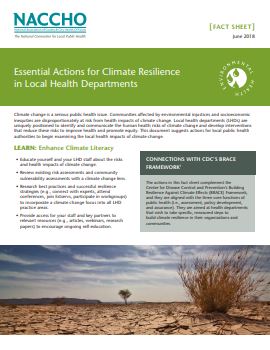
Essential Actions for Building Resilience in Local Health Departments
Completed in partnership with NACCHO’s Global Climate Change (GCC) Workgroup, the Essential Actions for Building Resilience in Local Health Departments is a fact sheet that gives a brief overview on steps LHDs can take to empower their communities. The sheet is defined by five main categories: Learn, Participate & Discuss, Collaborate, Create, and Reflect.
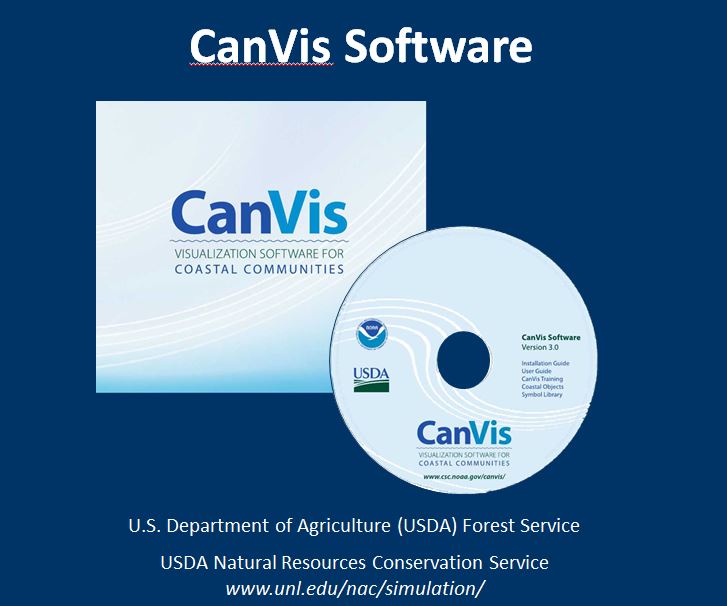
NOAA CanVis Visualization Tool (Clearinghouse)
The National Oceanic and Atmospheric Administration (NOAA) released a CanVis Visualization Tool that utilizes photo editing software to show the environmental impacts of sea-level rise. The CanVis platform allows users to input their own images and edit water levels to show stakeholders how their community will be impacted should no interventions be put in place.
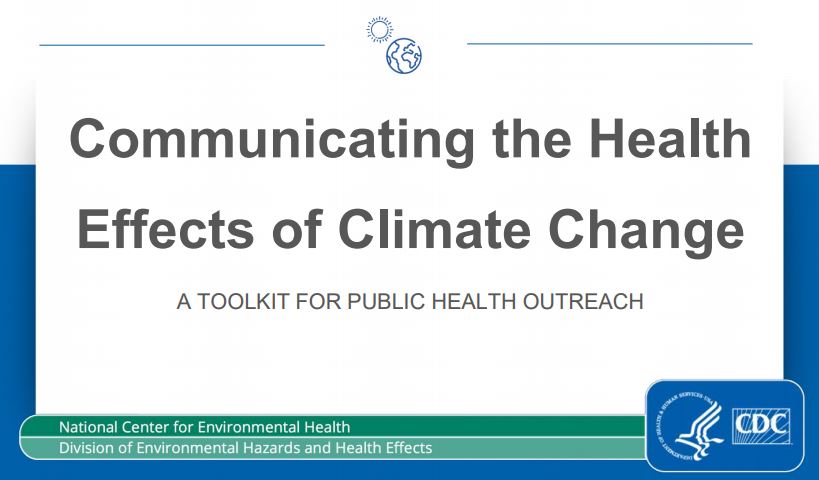
Communicating the Health Effects of Climate Change
The Communicating the Health Effects of Climate Change presentation from the Centers for Disease Control and Prevention (CDC) gives a holistic overview of problems that have been created or worsened due to climate change. The tool is an effective touchstone for public health professionals to use so that they can create their own presentations catered toward the pertinent issues for their localities.
Effective communication is key to successful health initiatives. Here are two more tools that can help guide discussions and deliverables around climate change:
- Conveying the Human Implications of Climate Change: A Climate Change Communication Primer for Public Health Professionals
- Connecting on Climate Change: A Guide to Effective Climate Change Communication
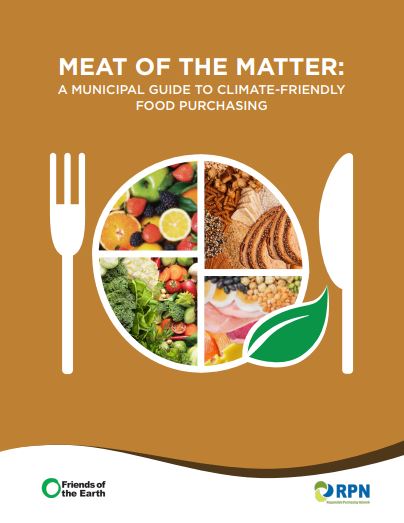
Meat of the Matter: A Municipal Guide to Climate-Friendly Food Purchasing
The current structure of global food systems contributes critical gases into the atmosphere that worsen the impacts of climate change. The gases come from the animals themselves, land alteration to accommodate food production, and international food transport. Meat of the Matter: A Municipal Guide to Climate-Friendly Food Purchasing was submitted to NACCHO by Friends of the Earth and lists steps that local governments can take to enact policy and shape the way their municipalities interact with food.
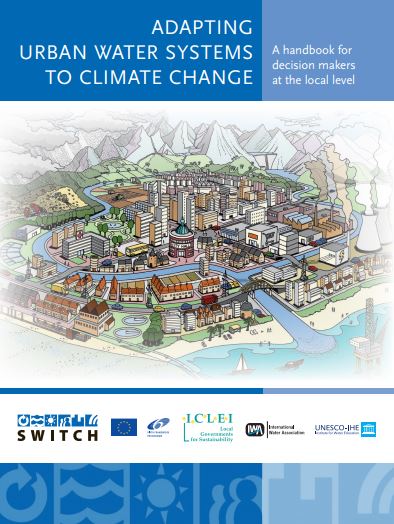
Adapting Urban Water Systems to Climate Change: A Handbook for Decision Makers at the Local Level
Climate change and its co-conspirators have the capacity to erode the quality of water across the country. As more pollutants enter waterways and infrastructure demands increase, local health departments will need strategies to improve their water systems. Adapting Urban Water Systems to Climate Change is a detailed handbook to guide small-sized governments in preserving the health of their communities by ensuring access to clean water. The handbook—a joint effort between Local Governments for Sustainability (ICLEI), the International Water Association (IWA), and IHE Delft Institute for Water Education (UNESCO-IHE)—explores specific planning processes governments can follow to keep water clean and accessible.
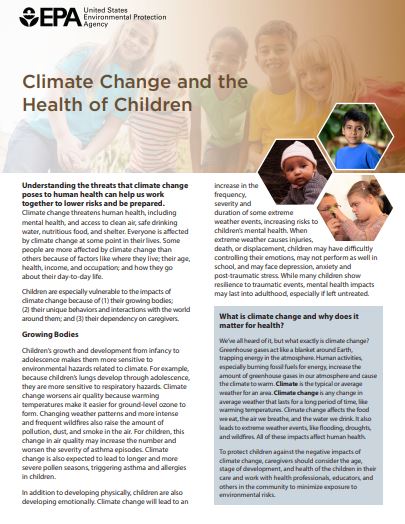
Informational Briefs on Climate Change and Vulnerable Populations
Two years ago, the Environmental Protection Agency (EPA) released several documents that detailed specifically how climate change would impact vulnerable communities, including children, people with disabilities, pregnant women, indigenous populations, people with existing medical conditions, the elderly, and occupational groups. These groups are present across the country and require special accommodations due to the increased risk climate change poses to their health. The tools present in each document give a brief overview of diverse research that will help in disseminating critical information in an efficient manner.
- Climate Change and the Health of Children
- Climate Change and the Health of People with Disabilities
- Climate Change and the Health of Pregnant Women
- Climate Change and the Health of Indigenous Populations
- Climate Change and the Health of People with Existing Medical Conditions
- Climate Change and the Health of Older Adults
- Climate Change and the Health of Occupational Groups
Submit a Tool to the Toolkit
NACCHO regularly maintains and updates the Climate Change Toolkit to ensure users have access to the most effective information. NACCHO celebrates collaboration and encourages any local health department to submit documents that they believe will be an effective addition to the toolkit. At the top of the Toolbox portal, select “Submit a Tool” and NACCHO will review your materials in hopes of aiding other public health officials across the country.






